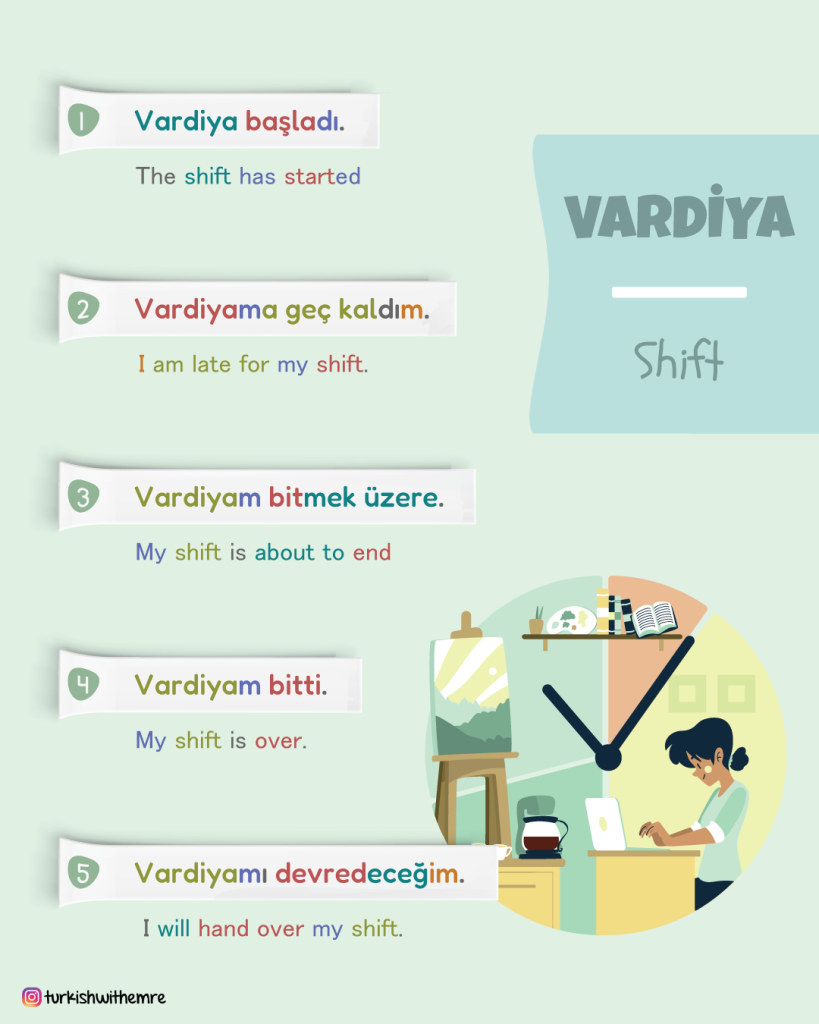Essential Turkish Phrases for Shifts at Work
Whether you’re working in a Turkish-speaking environment or learning Turkish for daily use, it’s important to know how to talk about shifts at work. In this lesson, we’ll cover key phrases related to starting, ending, and managing shifts in Turkish. These phrases will come in handy when you’re communicating with coworkers or supervisors about your work schedule.

Key Phrases for Shifts in Turkish
- Vardiya başladı.
Don’t talk loudly to me.
Use this phrase to inform someone that the work shift has begun.
- Vardiyama geç kaldım.
I am late for my shift.
This phrase is essential when you’re running late for your shift and need to inform a supervisor or colleague.
- Vardiyam bitmek üzere.
My shift is about to end.
Use this to notify others that your shift is complete and you’re finished for the day.
- Vardiyam bitti.
My shift is over.
Use this to notify others that your shift is complete and you’re finished for the day.
- Vardiyamı devredeceğim.
I will hand over my shift.
This phrase is used when you’re about to pass on responsibilities to the next person in line for the shift.
Vocabulary Breakdown:
- Vardiya: Shift
- Başlamak: To start
- Geç kalmak: To be late
- Bitmek: To end
- Devretmek: To hand over
Why Learning Shift-Related Phrases is Important:
For those working or traveling in Turkey, understanding these phrases can make managing work schedules much easier. By knowing how to communicate about shifts, you’ll be able to navigate a work environment more smoothly and ensure you’re always on top of your responsibilities.
These phrases also introduce key Turkish verbs and sentence structures that are useful in many other contexts. As you practice them, you’ll gain more confidence in speaking Turkish about other time-sensitive activities.
Practice Tip:
Try to practice these phrases by creating your own sentences about your daily routine or work shifts. For example, say, “Vardiyam 9’da başladı” (My shift started at 9) or “Vardiyamı devrettim” (I handed over my shift). By integrating these phrases into your learning routine, you’ll be prepared to use them in real-life scenarios.
